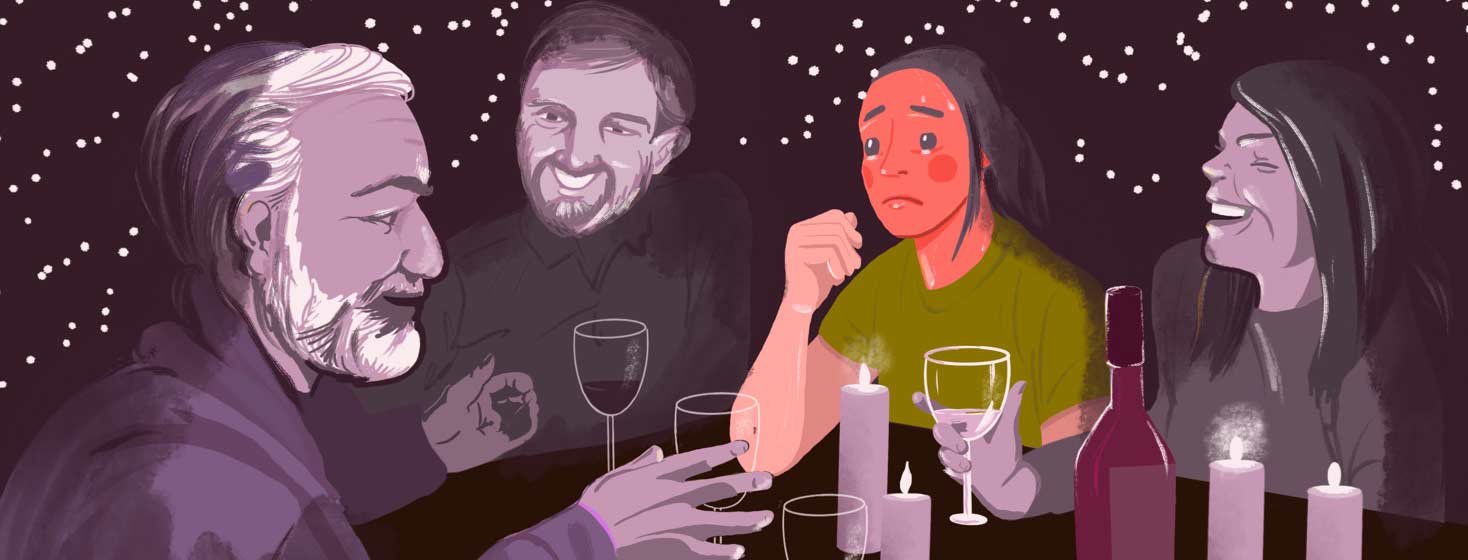Tips for Navigating Gatherings With a Rare Disease
Navigating gatherings with loved ones can be tricky enough on its own. Throw in a rare disease – and maybe a few extra chronic conditions – and I find myself mentally and emotionally bracing myself just thinking about it.
It’s often difficult for others to truly understand what individuals in the rare disease community experience. Questions that might seem like small talk to one person may be incredibly complicated and distressing to a person with a medical condition. These conversations can be uncomfortable and stressful and lead to advocacy burnout.
But I find that if I’m emotionally prepared, I feel much more relaxed. Here are my tips for navigating conversations at gatherings.
Use questions as an educational opportunity
I never expect anyone to know everything about all of my medical conditions, so whenever I have the emotional energy to do so, I’ll use questions as an educational opportunity.
“You still doing the gluten-free thing?” is a question I often get asked at food-focused gatherings.
“Yes, I have to eat very strictly gluten-free for the rest of my life because it’s the only treatment for celiac disease. The gluten-free diet is a medical requirement, not a choice.”
I can then re-direct the conversation to a different topic. But hopefully, I helped that person learn something. You never know, maybe that person is experiencing symptoms of the same disease, and through a longer conversation I help them get one step closer to figuring out what’s wrong. You never know how seemingly casual conversations can change someone’s life.
Change the subject
Often, people don’t realize that a question might be insensitive or very personal, and honestly, there are times when I just don’t have the emotional energy to educate. Or maybe I’m making small talk with someone I just met and don’t want to do a deep dive into my personal medical history. I want to relax and enjoy the gathering with everyone else without my medical condition being the focus of attention.
It’s more than okay to change the subject. So if someone asks, “How is treatment going?” I might reply, “Oh, it’s a complicated process. Let’s talk about something more fun. Do you have any vacations coming up?”
I don’t need to pressure myself into being an advocacy superhero 24/7.
Ask a partner to help communicate
I’ve had 5 surgeries in the past 2.5 years, and getting through this medical treatment during a pandemic has been my primary focus. I understand that my friends and family want to check in and make sure I’m okay, but I’m just tired and am trying to move on.
Several times my husband has jumped in to help reach out to loved ones before gatherings. “Yes, Jessica’s doing okay, but it’s been a long road. She’s looking forward to enjoying time together but doesn’t want her surgeries to be the focus. Could we avoid that topic at dinner?”
Exit inappropriate situations
Belittling or making fun of someone else’s medical condition is never appropriate, but unfortunately, it happens. Depending on the situation, I might choose to educate the individual, but I also give myself permission to leave. I have no obligation to stay in an emotionally abusive situation.
Take care of yourself
There sometimes comes the point when I need to leave a gathering to address my conditions. As much as I don’t want my conditions to affect my social life, this is just the reality of chronic illness. It can feel upsetting and disappointing, but my health needs to come first.
I also try to cut myself some slack. Navigating chronic illnesses is hard, and hey, other people leave parties early all the time – traffic, tired from a long day, getting up early for work, etc. I may be disappointed that I can’t stay, but ultimately I need to take care of myself.
“This has been so much fun, but I’m turning into a pumpkin and need to call it a night. Thanks for having me!” is my simple, go-to exit.
How do you navigate conversations and gatherings with loved ones? Share with us in the comments below!

Join the conversation